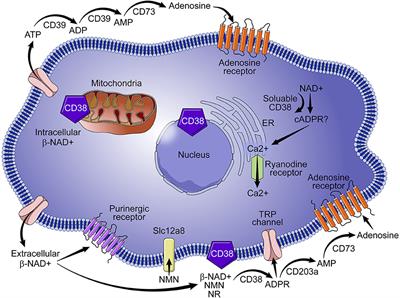REVIEW
Published on 04 Oct 2019
Ectonucleotidases in Blood Malignancies: A Tale of Surface Markers and Therapeutic Targets

doi 10.3389/fimmu.2019.02301
- 4,721 views
- 29 citations
20k
Total downloads
79k
Total views and downloads
You will be redirected to our submission process.
REVIEW
Published on 04 Oct 2019

MINI REVIEW
Published on 26 Jul 2019

REVIEW
Published on 26 Jul 2019

REVIEW
Published on 16 Jul 2019

REVIEW
Published on 31 May 2019

MINI REVIEW
Published on 19 Mar 2019

